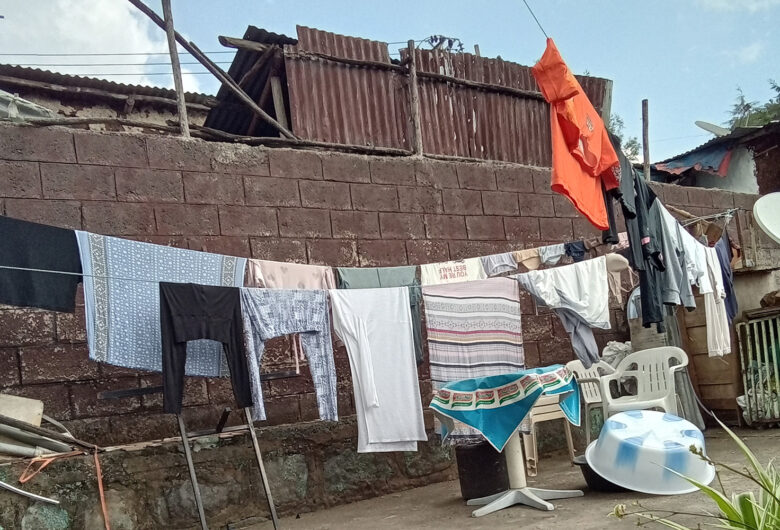Welcome to the Freedom Fund’s monthly bulletin designed to bring you new and compelling research from the global anti-slavery movement.
Latest Trafficking in Persons Report by the U.S. Department of State
The 2024 Trafficking in Persons report highlights the dual role of technology in exploiting victims as well as aiding in the identification and protection of trafficking survivors. It explores the challenges related to data privacy and ownership, and the urgency for information sharing to guide policies and interventions. The report also emphasises issues such as illicit financial transactions linked to human trafficking and the rise in organ trafficking. This year’s assessment promoted Botswana, Egypt, Iraq and Malaysia into Tier 2, while demoting Laos, Liberia, Nepal, Rwanda and Zimbabwe to the Tier 2 watch list, and Brunei and Sudan into the lowest Tier 3.
Financial services to help protect vulnerable groups from modern slavery
The United Nations University Centre for Policy Research reviews current practices by financial institutions and regulators to include vulnerable groups and reduce their risk of modern slavery. Drawing on case studies ranging from Cambodia, Pakistan, Mexico, the UK and the US, the study examines how excluding the poor, migrant workers, refugees, people with disabilities and the homeless from savings, credit, insurance, payments, and transactions increases their vulnerability to exploitation. Recommendations include making financial services and products more affordable, supplemented by financial literacy and education.
Bangladesh’s leather industry relies on child labour for survival
Research by Grambangla Unnayan Committee, a Bangladeshi NGO, reports on child labour in the local leather industry. Interviews with 35 owners of small informal enterprises reveal that 10% of their workforce are children. Owners emphasise their struggles to keep businesses afloat due to ‘produce now, pay later’ arrangements, unpredictable payment schedules and low price points. Many owners are former child labourers themselves and resort to employing children to sustain their businesses. The study highlights the economic dysfunction of complex supply chains, and advocates engaging with these business owners, rather than demonising them, to address child labour in the leather industry.
Migrant workers face barriers to claiming unpaid wages in Australia
The Migrant Justice Institute investigates the barriers migrant workers face in claiming and receiving unpaid wages in Australia. Drawing on data from a survey with over 15,000 migrant workers, observations of 25 hearings, and stakeholder consultations, the study uncovers migrant workers’ struggles in resolving disputes with their employer, filing wage claims without affordable legal assistance, and receiving court-ordered payments from employers who refuse to pay. The authors recommend simplifying processes and expanding legal representation for workers through community legal service providers, unions, and migrant workers’ centres.
School quality and child labour in Côte d’Ivoire
A study led by the University of Toronto, Canada, examines the link between school quality and child labour in Côte d’Ivoire’s cocoa producing areas. The study surveyed 2,168 fifth-grade students, revealing that 38% were working in cocoa agriculture. Higher rates were reported by boys compared to girls, and among older children. Further, 35% of the children were using sharp tools and 9% performed tasks involving harmful chemicals. The study found a statistical link between higher school quality and fewer children engaged in cocoa agricultural work, especially with schools that had smaller class sizes, child-appropriate materials, and access to water, electricity and latrines.
Read on
Freie Universität Berlin assesses recent NGO campaigns targeting an EU supply chains directive. It found that these campaigns often used problematic narratives that portrayed NGOs and governments in the Global North as saviours.
After Exploitation analyses the state of modern slavery evidence and data within the UK. Gaps in informed consent, along with inaccurate and inconsistent data, are said to be leading to poor outcomes for survivors and misguided policy decisions.
The University of Brighton reviews tools designed to identify survivors of abuse using remote technology and suggests using them to complement face-to-face screening by professionals.
Freedom Fund news
Survivor-led organisations are rising in prominence and have an integral role in guiding anti-slavery responses, as discussed by Daniel Melese, our Country Representative in Ethiopia.
Visit our Newsroom for more updates.
Research library
Visit our Slavery Research Library to access anti-slavery resources from across the globe.
Contact
The Slavery Research Bulletin is produced monthly by the Freedom Fund, a global fund with the sole aim of helping end modern slavery.
Research being featured in this bulletin does not equal endorsement by the Freedom Fund.
Click here to sign up to the Slavery Research Bulletin mailing list.
Photo credit: Natália Corrêa / The Freedom Fund



